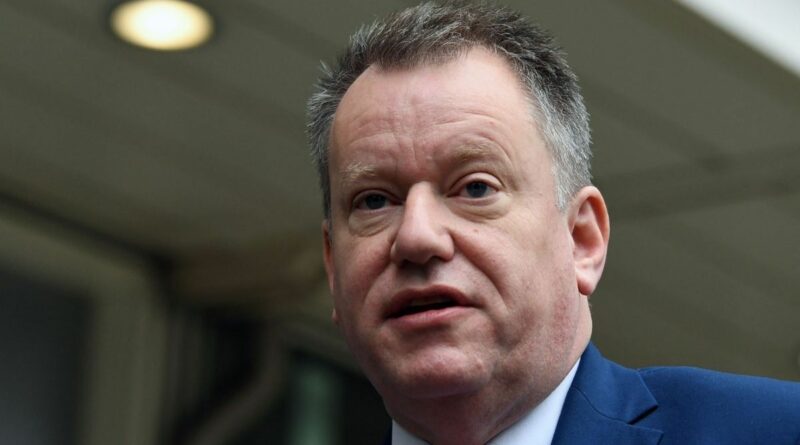Brexit LIVE: ‘Disrupting the balance’ Lord Frost erupts at Irish government over deal
Brexit: Brandon Lewis says NI protocol having 'profound impact'
We use your sign-up to provide content in ways you’ve consented to and to improve our understanding of you. This may include adverts from us and 3rd parties based on our understanding. You can unsubscribe at any time. More info
The UK’s former Brexit negotiator claimed that, at crucial moments over the past five years, Ireland had prioritised protecting the European single market over working collaboratively with Britain and Northern Ireland.
Speaking to right-wing think tank Policy Exchange, he said: “It fears being cut off from the single market itself and it recognises it must maintain influence in the EU.
“I hope Ireland feels it got good value from the EU for acting like this.
“It doesn’t look 100 percent clear to me that it always does, and certainly its negotiating capital on this subject seems close to exhausted.”
He added: “We should ourselves of course continue to try to work constructively with Ireland bilaterally. But I would like to see Ireland acting in the same spirit, not disrupting the balance in Northern Ireland by constantly using vague and destabilising language about tectonic shifts in the North, where they’re talking the supposed all-Ireland economy.”
Lord Frost has said the UK Government should trigger Article 16 of the treaty that created the Irish Sea border and unilaterally override the protocol, with would anger Brussels and risk a trade war.
FOLLOW BELOW FOR LIVE UPDATES

David Frost ‘surprised’ EU resisting demands to renegotiate NI Protocol
David Frost said he was surprised the EU was resisting Britain’s demands to renegotiate the Northern Ireland protocol.
The former Cabinet minister, who negotiated the protocol, said that if it could not be improved through renegotiations Britain should act unilaterally to override its terms.
He said: “It would be entirely reasonable, in my view, for the government to act unilaterally to over-ride key elements of the protocol in domestic law. In so doing, it would be safeguarding its higher obligation to the Belfast Agreement.
“I personally do not believe that acting against protocol should raise or need raise any issues of wider UK compliance with international law. On the wider issues, our track record speaks for itself. The UK is one of the most outspoken advocates of an international system based on agreed rules.”
Source: Read Full Article



